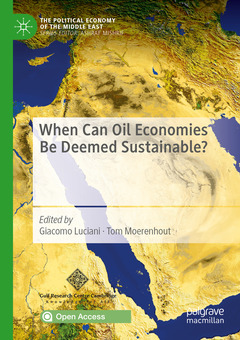When Can Oil Economies Be Deemed Sustainable?, 1st ed. 2021 The Political Economy of the Middle East Series
Coordonnateurs : Luciani Giacomo, Moerenhout Tom

Date de parution : 10-2020
Ouvrage de 365 p.
14.8x21 cm
Date de parution : 10-2020
Ouvrage de 365 p.
14.8x21 cm
Thèmes de When Can Oil Economies Be Deemed Sustainable? :
Mots-clés :
Open Access; Sustainability of GCC Development; New Global Oil Order; Economic sustainability in resource-rich states; Gulf Economic Diversification and Sustainable Development; Political Economy of Diversification; Economic Transformation vs; Diversification; Oil and Economic Diversification; Fiscal dimensions of Economic Sustainability; Labour Market dimensions of Economic Sustainability; Hydrocarbon Endowment in the Gulf Region; Normalizing the Saudi Economy; Inclusive Growth in the Gulf Region; Saudi Private Sector’s Contribution to Fiscal Sustainability; Economic Sustainability and the Energy Transition; Economic Diversification in the MENA; Peak Oil and the Energy Transition in the MENA; Economic Diversification Through Energy Sector Reform; Energy Pricing Reform in the Gulf Region; Climate Strategy for Producer Countries



